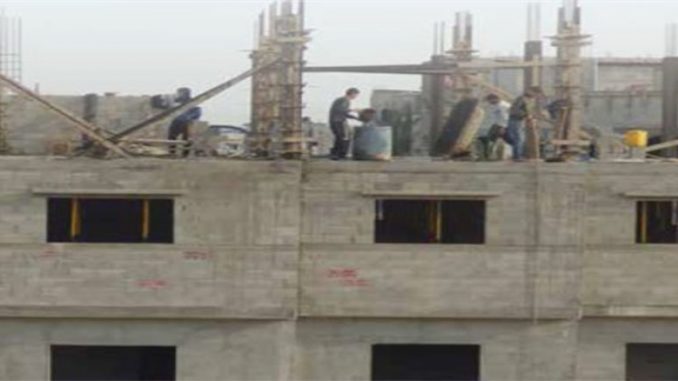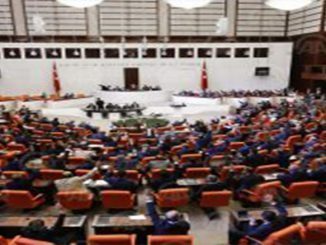
Israeli forces conducted two airstrikes in the besieged Gaza Strip late Wednesday night, damaging the coastal enclave’s already tenuous electricity infrastructure.
The Israeli army said in a statement that in response to a projectile being fired from Gaza and landing in an open area in southern Israel, causing no injuries, Israeli air forces had targeted two positions belonging to Hamas in the northern Gaza Strip.
Local sources reported that two Israeli missiles hit a training post of the Izz al-Din al-Qassam Brigades — the Hamas movement’s military wing — west of Deir al-Balah in the central Gaza Strip, sparking a fire.
Two more missiles landed east of the Shujaaiya neighborhood of Gaza City, cutting off the electricity supply in the area.
No injuries were reported in either airstrike.
The electricity company in Gaza said that three power lines were damaged by the airstrikes across the blockaded Palestinian territory, with spokesman Muhammad Thabet stating that it wasn’t clear how long it would take to reinstate electricity access to the affected neighborhoods.
Shells have been fired from the blockaded coastal territory into Israel a number of times since the beginning of the year, without causing any casualties.
Israeli forces have launched airstrikes in retaliation, injuring at least seven Palestinians during the same time frame.
In February, Gaza’s Ministry of Health claimed that two Palestinians were killed and five were injured as a result of an airstrike on a smuggling tunnel between Egypt and Gaza, though an Israeli army spokesperson denied involvement in the incident.
Israeli officials have accused Hamas, Gaza’s de facto leaders, of “preparing” for another war with Israel and have threatened retaliatory measures against the Gaza Strip as a whole, while Israeli authorities hold Hamas responsible for all attacks against Israeli targets coming from the Gaza Strip.
However, Hamas has not claimed responsibility for any rocket attacks since a ceasefire was declared after Israel’s devastating war in Gaza in 2014, and the movement has attempted to clamp down on armed activity by smaller political groups that do launch rockets from the territory.
On Tuesday, senior Hamas official Khalil al-Hayya said that the Hamas movement was “not seeking new military confrontations with the Israeli occupation,” but that “if the Israeli occupation wages war against us, our lions will respond in the fields.”
“We are not war fanatics, but we are a bereaved and oppressed people who resist occupation,” al-Hayya said.
The al-Mezan Center for Human Rights expressed concern in February that Israel could be leading up to a wide-scale military offensive in the besieged Gaza Strip.
The rights group called on the international community to “act promptly against Israel’s military escalation, to fulfill their obligations to protect civilians, and ensure respect for the rules of international law,” stressing that “acting before a full-scale military bombardment is launched is crucial to ensuring the protection of Palestinian civilians in the Gaza Strip.”



